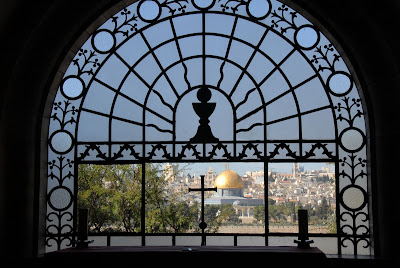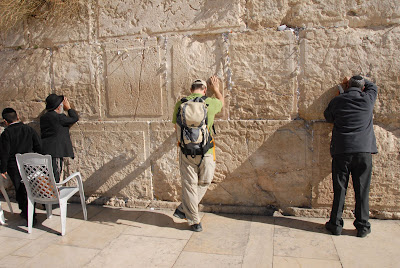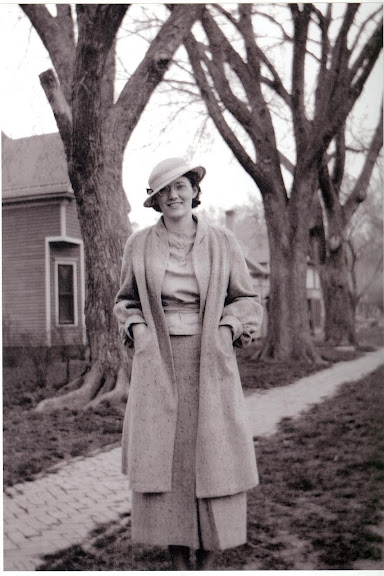I grew up in an Assemblies of God church, where most folks supported Israel almost instinctively. In the Presbyterian church I now attend, many members dislike Israel just as instinctively. As for myself, I like Israel: I identify with it emotionally: I like the people there: I love the country and celebrate its successes. As I walk around the streets of Tel Aviv, I smile at the עם ישראל חי graffiti that shows up everywhere: so different from what you see in the States, and redolent of a people so in love with their nation that even their hoodlums are patriotic.

My pastor recently loaned me a DVD called The Iron Wall. (It’s posted in its entirety here.) It tells the story of Israel’s settlement, and the building of the wall – or the “barrier” as my Israeli friends refer to it – and the consequent suffering of the Palestinians at the hands of the Israelis. It’s blatantly unfair in some respects, as it tells the story of Israeli injustice and brutality without any sense of the context in which those acts occurred, but what remains is still troubling.
As Charlie was handing over the DVD, we talked about the situation in Israel, and his plan to visit there in the near future. Through the course of our discussion – well, argument, really, but the respectful kind – it became clear that whatever our assessment of the facts, our emotional perception of Israel was quite different. If you were to give names to the ways in which our different perspectives represent the Biblical tradition, I suppose you could say that I’m more like David, and he’s more like Nathan. I respond emotionally to Israel’s glories: he responds emotionally to her failures. I most easily see Israel as somehow, uniquely the chosen people of God; Charlie sees how she has failed to live up to that calling. I think that both perspectives have truth to them; both have some degree of Scriptural warrant; and both are, to some degree, unfair and biased. (As Charlie put it, “I don’t get angry about Darfur the way I get angry about the West Bank. I want to hold Israel to a higher standard.”)
That said, I agree with my pastor that Israel’s settlements on the West Bank have done a great deal of harm, both to the Palestinians who were displaced, and to Israel’s moral standing in the world, and with its own people. The settlements are blatantly illegal, and while the various governments which permitted them did so to solve short-term political dilemmas, they’ve closed the door to all but the most determined peace process. When Arafat refused Ehud Barak’s offer to withdraw from more than 90% of the West Bank, most Israelis reasonably concluded that Arafat was not serious about peace. But when Barak’s same government continued to build settlements, it was perhaps reasonable for the Palestinians to conclude that Israel wasn’t terribly serious about peace, either. Israel has a non-negotiable right to exist in security; it doesn’t have a right to take whatever land it wants from people who already live there; and it saddens me that Israel has continued to engage in this self-destructive policy.
I think my pastor and I could both agree that the whole area seems to be under the sway of an odd mix of sin and holiness. It’s as if life is lived at a different intensity in the holy land: as if spiritual forces are more actively engaged. The first time I touched the Wall, I felt a sudden weight of centuries, of depth, of history, of glory: the legacy of David. The second time I touched it, I felt a sense of waiting, expectation, sadness, and more waiting: the legacy of Nathan.




